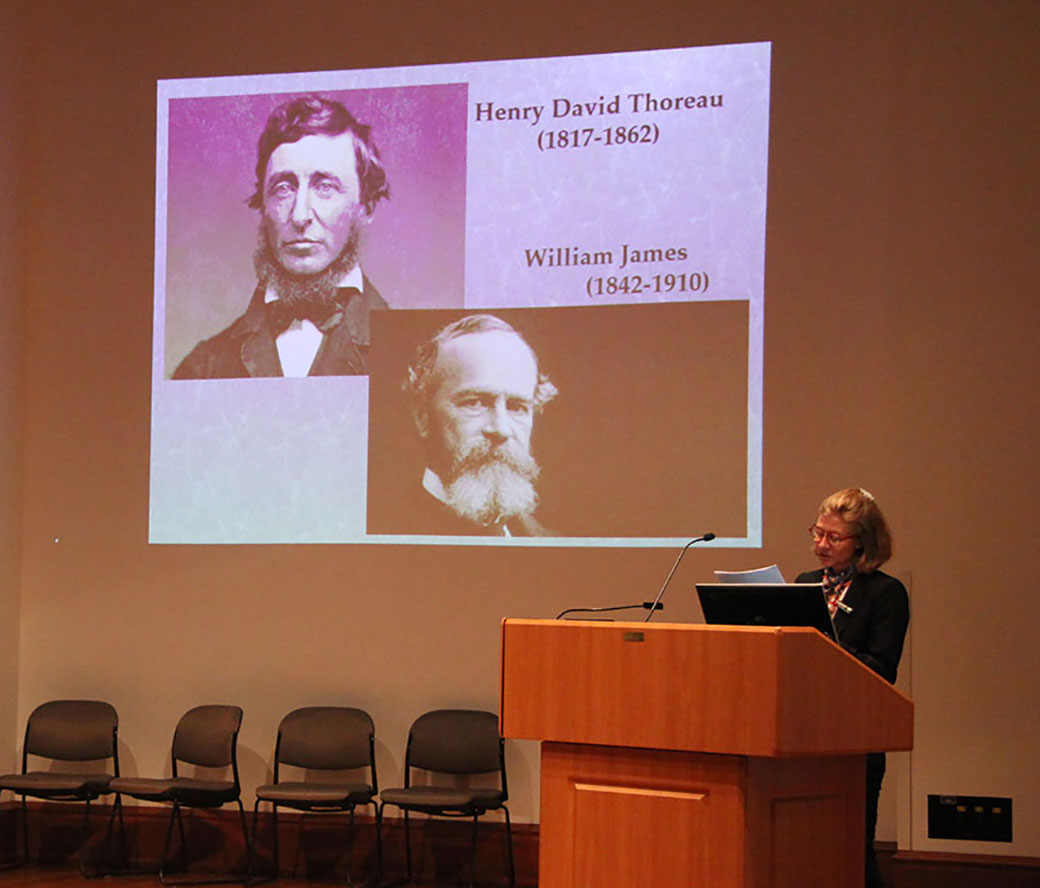
Colloquium Series encourages student and faculty discussions
For the fourth year in a row, the English department is hosting a series of lectures called the Colloquium Series.
A lecture is given every Monday night from 4 to 5 p.m. in Farber Hall this semester.
Darlene Farabee, chair of the English department, said the lectures are pointed to a general audience.
“There is not an assumption that someone has in fact read a particular set of materials,” Farabee said. “We sort of frame them as being for people who are interested in literature or literary topics, but who maybe haven’t done the particular reading that someone else is talking about. So even if it’s not in an area that someone already knows something about, they can feel like they can come and listen to them.”
Farabee said one of the reasons the department started this series was so that everyone could become familiar with the faculty.
“One (reason) was to provide an opportunity for undergraduates and our students to become acquainted with our faculty so that they would have a better chance to make decisions about who they are going to take classes with, for example,” Farabee said. “Then also for our graduate students to know about the faculty’s research areas. Often times graduate students end up working on dissertation or thesis committees with faculty who they haven’t actually had a course with.”
The lectures are attended by students, faculty and community members, Farabee said. Around 30 to 35 people attend the lectures each week.
The series switches topics every year, Farabee said. This year the topics focus on themes, genres and approaches to literary study.
Last week’s lecture was given by Prentiss Clark, an assistant English professor. Her topic was “Thoreau’s ‘Wildness’ and James William’s ‘Joy’: Aesthetic Experience and the Possibility of Ethics.”
Clark said the first time she spoke at the series was in 2014. About 30 people attended her lecture this year.
“I love the two writers Thoreau and William James — they have interesting and relevant perspectives for society,” Clark said. “They’re part of a project that I’m just beginning to work on, so it’s really nice to present something that’s informal that’s just beginning to think about something and sort of exploratory, asking questions. I think the way that James and Thoreau think about human life and human experiences and living deliberately, it’s something that’s really relevant for people to think about today.”
The Colloquium Series is a chance for English department faculty to present a lecture based on their area of interest and expertise, Clark said.
“I work primarily on 18th century writers,” she said. “Some of the lectures are works in progress, like mine. Some of them are more focused on a genre, like drama or poetry, and some of them are focused on approaches to literature.”
Chelsea Campbell, a graduate student studying English, said it’s important for students, particularly in the field of English, to attend so they can become “generalists” in their field and be able to draw on different resources.
“It’s really interesting to see what professors and experts in their field are working on and getting a sense of the concerns they are trying to address, whether in the field or even how they are relating it to issues going on today,” Campbell said.
Farabee said she likes the camaraderie the series encourages between faculty and students.
“It is something that we all sort of go to and see each other at and have these kind of in-common discussions,” she said.
Farabee said she appreciates how friendly the faculty in the English department is as a whole.
“I really like my colleagues,” Farabee said. “I’m very lucky, and I know this because I have friends of mine who teach at other universities who are not in as collegiate of a department, and I definitely appreciate that. It’s also nice to just be around so many people who are just smart and quick and genuinely interested in helping their students to do the best work that they can.”

